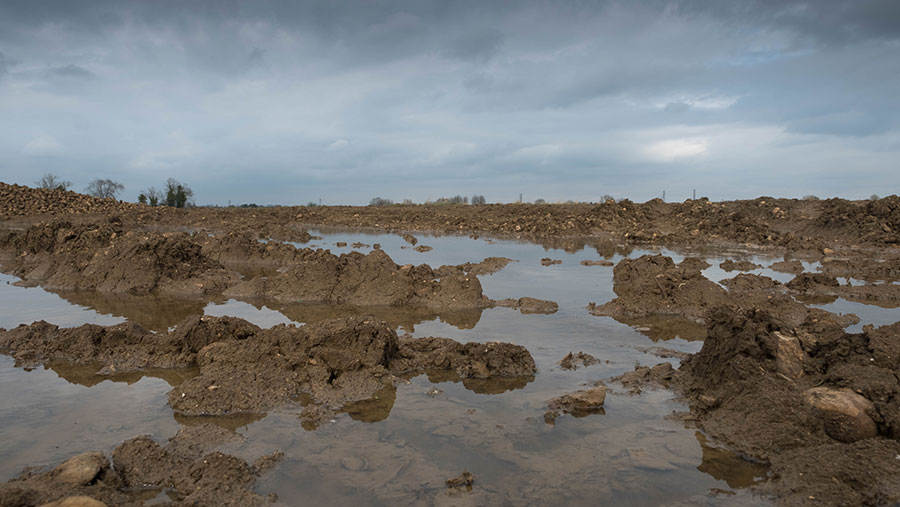Soil erosion poses risk to food security, study warns
 © Tim Scrivener
© Tim Scrivener Soil erosion on UK farms will contribute to a decline in crop yields if left unchecked, according to new research.
Scientists at the University of Exeter studied more than 1,500 records and found 16% relating to arable land showed erosion above “tolerable” levels – meaning rates of soil loss are significantly greater than new soil formation.
See also: How to manage fallow land hit by wet winter weather
“If we don’t manage it properly in the UK and around the world, it will affect our ability to feed our growing population,” said lead author Pia Benaud.
“Soil runoff also leads to significant extra sediment in waterways, increasing the damage to ecology and risk of flooding downstream.”
Leaving fields bare, ploughing up and down a hill – instead of across it – or growing arable crops on steep slopes increases the risk of erosion during heavy rain, the study found.
Soil types and local geography also affect erosion rates, though erosion is shown to occur on any soil that is intensively farmed, especially when rainfall is extreme.
Despite raising concerns about UK erosion above the “tolerable” rate of one metric tonne per hectare per year, the study found rates in the UK are relatively low compared to the rest of Europe, demonstrating that erosion is a serious global problem.
The highest UK erosion rate found was more than 140t/ha per year – recorded on a single field in West Sussex in the early 1990s.
Policy rethink
Dr Benaud said UK legislation, particularly existing farm subsidies, pays farmers for land to be managed in a way that “leads to unsustainable erosion, with public funding”.
She added: “We argue that this should be addressed as a matter of urgency by policymakers, with soil protection at the heart of forthcoming environmental land management schemes.”
Healthy soils are a key focus in Defra’s forthcoming Environmental Land Management (ELM) scheme. Defra included soils in its new Agriculture Bill in January under its list of “payment of public money for public goods”.
The department said the inclusion is a way of allowing it to “provide assistance for soil monitoring programmes and soil health research to support farmers with their decision-making and soil management”.
